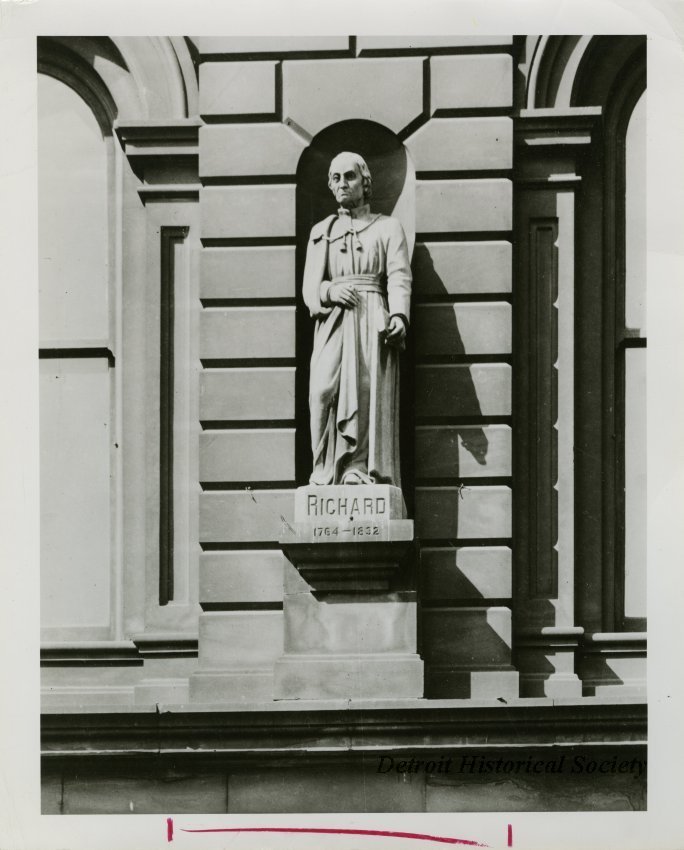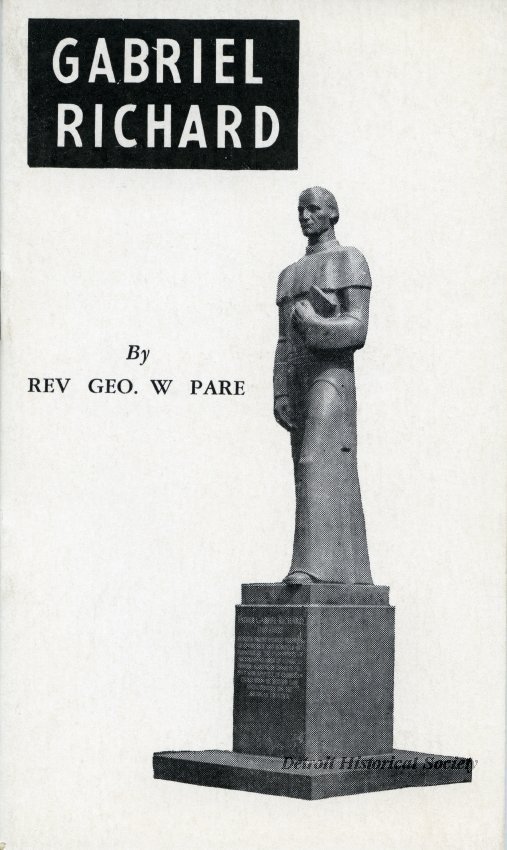Encyclopedia Of Detroit
Richard, Father Gabriel
Gabriel Jacques Richard was born in La Ville de Saintes, France on October 15, 1767. He entered the Society of the Priests of St. Sulpice on April 10, 1790, and was ordained a priest on October 9, 1791. In 1792, he immigrated to Baltimore, Maryland. He taught mathematics at St. Mary's Seminary in Baltimore, until being assigned to do missionary work for the American Indians of the Northwest Territory.
Father Richard was next assigned to Detroit and arrived on Sunday, June 3, 1798. He became pastor of Ste. Anne Parish in 1802 and was instrumental in the building of the parish’s seventh church. Detroit’s motto, “We hope for better things; it will rise from the ashes.” Are attributed to Richard following Detroit’s Great Fire of 1805. These words remain part of the seal of the City of Detroit. He brought a printing press to the area and in 1809 printed Michigan's first newspaper, The Michigan Essay or Impartial Observer. He published many books with the press. The first publication was The Child’s Spelling Book, which historians attribute to Richard although most of the other books issued were reprints.
His personal library of 240 books, preserved by Sacred Heart Seminary from 1925 to 1951, was presented to the University of Michigan in 1951. The books show a range of academic areas including philosophy, theology, science, law, history and literature. A book on the Gospel of St. John was printed in English and Mohawk. Father Richard established a school in 1808 for Native American and white children. Along with Reverend John Monteith and others, he founded the Catholepistemiad (University of Michigan) on August 26, 1817.
From 1823 to 1825 Richard was Michigan Territory's delegate to the United States Congress. As a delegate, he was instrumental in gaining increased support for the Territorial Road, which linked Detroit and Chicago, opening Michigan to settlement. He remained in Detroit until he died on September 13, 1832 while ministering to victims of the cholera epidemic. He was buried in a crypt in the chapel in the eighth Ste. Anne’s church in Detroit.



